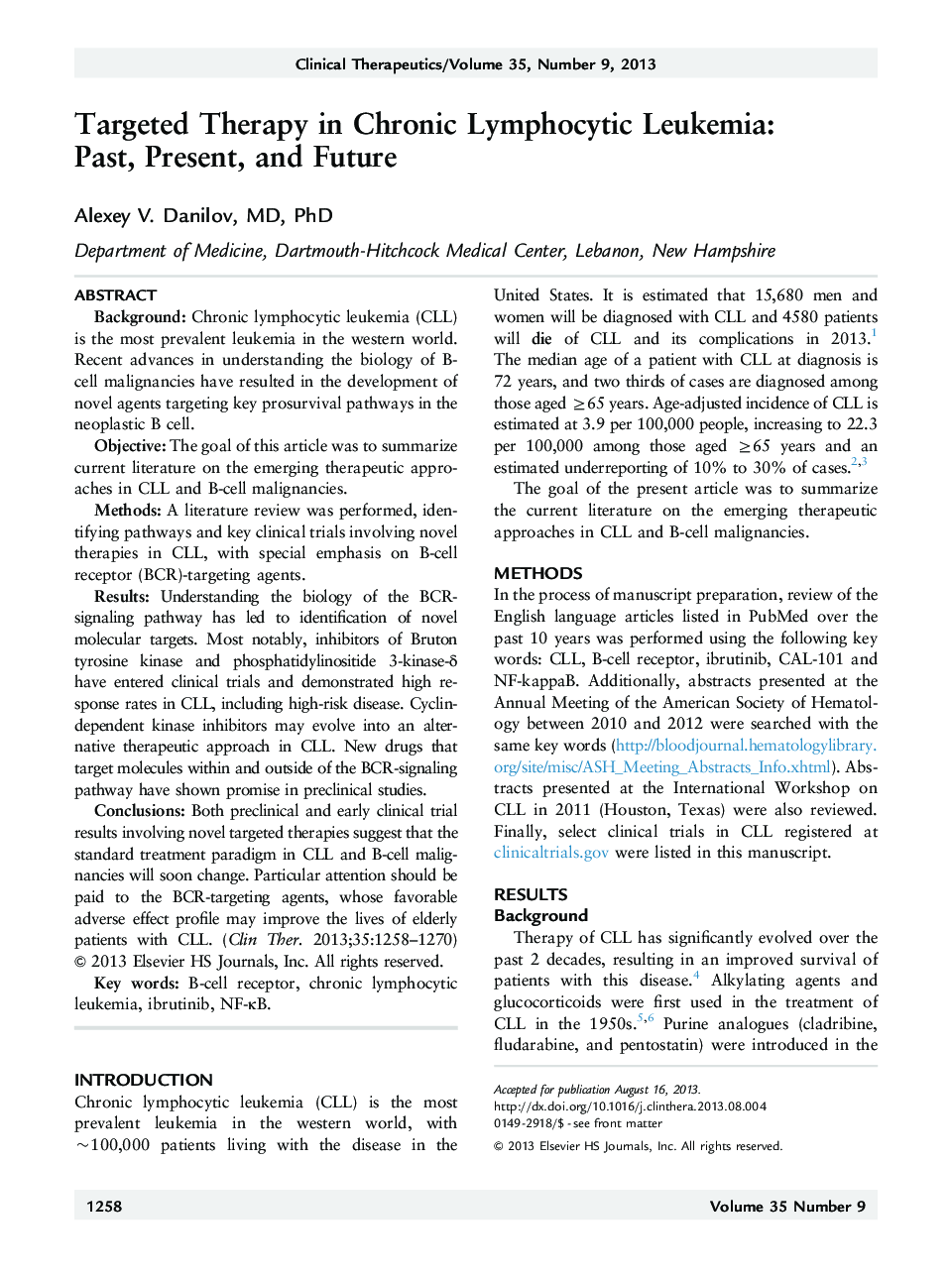| Article ID | Journal | Published Year | Pages | File Type |
|---|---|---|---|---|
| 2527177 | Clinical Therapeutics | 2013 | 13 Pages |
BackgroundChronic lymphocytic leukemia (CLL) is the most prevalent leukemia in the western world. Recent advances in understanding the biology of B-cell malignancies have resulted in the development of novel agents targeting key prosurvival pathways in the neoplastic B cell.ObjectiveThe goal of this article was to summarize current literature on the emerging therapeutic approaches in CLL and B-cell malignancies.MethodsA literature review was performed, identifying pathways and key clinical trials involving novel therapies in CLL, with special emphasis on B-cell receptor (BCR)-targeting agents.ResultsUnderstanding the biology of the BCR-signaling pathway has led to identification of novel molecular targets. Most notably, inhibitors of Bruton tyrosine kinase and phosphatidylinositide 3-kinase-δ have entered clinical trials and demonstrated high response rates in CLL, including high-risk disease. Cyclin-dependent kinase inhibitors may evolve into an alternative therapeutic approach in CLL. New drugs that target molecules within and outside of the BCR-signaling pathway have shown promise in preclinical studies.ConclusionsBoth preclinical and early clinical trial results involving novel targeted therapies suggest that the standard treatment paradigm in CLL and B-cell malignancies will soon change. Particular attention should be paid to the BCR-targeting agents, whose favorable adverse effect profile may improve the lives of elderly patients with CLL.
